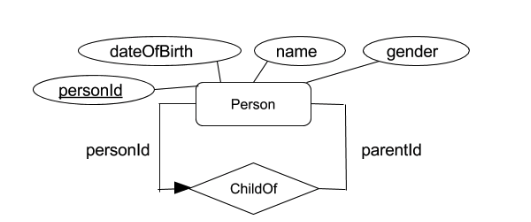I have this ER model that I am having difficulty understanding, since there is an entity set that has a relationship with itself. I am trying to understand two questions:
1) Can a child be born before the parent?
2) Can a person to be a child of themselves?
For 1) I don't think this is possible, because the parentID field would be null
For 2) Since this is a many to one relationship, I don't see why this can't be true, as long as the person isn't a child of someone else.

